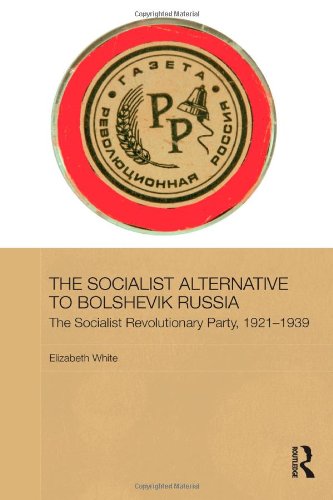

Most ebook files are in PDF format, so you can easily read them using various software such as Foxit Reader or directly on the Google Chrome browser.
Some ebook files are released by publishers in other formats such as .awz, .mobi, .epub, .fb2, etc. You may need to install specific software to read these formats on mobile/PC, such as Calibre.
Please read the tutorial at this link: https://ebookbell.com/faq
We offer FREE conversion to the popular formats you request; however, this may take some time. Therefore, right after payment, please email us, and we will try to provide the service as quickly as possible.
For some exceptional file formats or broken links (if any), please refrain from opening any disputes. Instead, email us first, and we will try to assist within a maximum of 6 hours.
EbookBell Team

4.0
86 reviewsThe Socialist Revolutionary party, which had been the largest and most popular party in Russia in 1917, did not after the October Revolution just disappear into the "dustbin of history", as Trotsky hoped, but – led by its leadership in exile in the 1920s and 1930s – continued to observe and comment on developments in Russia.
In emigration, the Socialist Revolutionary (SR) party often put forward policy proposals on a wide range of topics: policies which, based on a shrewd understanding of the real situation in Russia, offered realistic alternatives to the policies being pursued by the Marxist Bolshevik regime. This book fills a gap in examining one of the most significant Russian political parties, and is based on extensive original analysis of SR party materials, shows how it operated; how it formulated and disseminated its ideas; what these ideas were, and how the party's ideas developed in response to changing circumstances in Russia and Europe more widely. Far from being the agrarian Slavophile romantics as they are often portrayed, this book shows the SRs were energetic European modernisers who contributed vigorously to the leading debates of their day; it also shows how the SR vision of a populist, socialist regime failed to materialise as state control, dictatorship and the collectivisation of agriculture took hold.